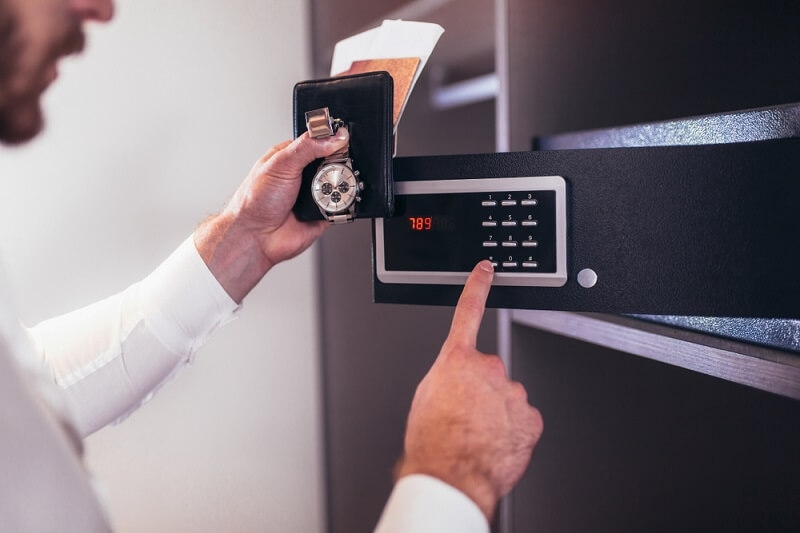
Running a small business means handling a lot at once. From daily operations to managing people and finances, there’s always something on your mind. But one thing that should never slip through the cracks is security. Whether you’re running a boutique, a café, or an office, having the right small business security system in place protects everything you’ve built.
Security is no longer just about locks and cameras. It’s about building a connected system that keeps your business safe, gives you peace of mind, and supports long-term growth.
Annually, small companies suffer losses of billions of dollars due to theft, vandalism, and break-ins, among other issues. The loss of goods is not the only effect of such incidents. Time, trust, and self-assurance are also lost. For this reason, a well-planned and executed small business security system is one of the most intelligent investments you can make.
Here is what a robust security system will do for you:
Even a basic setup consisting of alarms and cameras can bring about a considerable change in your security situation.
Explore More: Creative Small Business Ideas to Start in the US on a Budget
The first time when you compare different systems, the wide range of security system prices can be a little difficult to understand. The costs will vary depending on the size of the area that you want to secure, the number of entry points, and the features that you like.
Here is what, in general, small businesses can expect:
If access control or business surveillance is required, the price will increase, but so will the level of protection.
The good news is that modern systems are modular. You can start with a small system and then expand it as your business grows.
Before making a purchase, determine your budget and what needs protection. Setting a small business security budget is a practical approach. The goal is to invest enough to be protected without falling into the trap of overspending on unnecessary features.
Follow these steps to get started:
A good rule is to allocate 10–15% of your total setup cost each year for maintenance and upgrades. That keeps your commercial security system reliable and ready when you need it most.

Every single business does not require the same things. The most suitable security system for a small company is based on your place, size and the activities in a day. Below are the types of security systems you will find in the market:
These systems notify you or a monitoring center when a break-in occurs. Most systems rely on door sensors, motion detectors, and glass-break sensors. They are very, very simple yet super effective.
A business monitoring system is a must nowadays. Besides keeping an eye on the situation live, recording, and even checking from afar, a monitoring system does it all.
Control of access systems supervises who is allowed to move around in the areas of the building that are off-limits. It could be through a keypad, or a keycard or a fingerprint scanner that these facilities restrict access and maintain a digital record of every individual’s entry and exit.
Security isn’t limited to stealing only. Installing fire, smoke, or water sensors in your commercial space assures you the safety of your property against disasters like water ingress, and flaming, and smoke damage.
If you prefer a DIY approach, go for it, but test thoroughly. Even a simple mistake like a misaligned motion sensor can lead to false alarms or blind spots.
Must Read: Small Business Financial KPIs Every Owner Must Track to Grow
A commercial security system sounds more advanced because it often is. These setups are used by larger businesses and integrate multiple layers of protection. The difference lies in scalability and control.
| Feature | Basic Small Business System | Commercial Security System |
| Size | Small retail or office | Multi-floor or warehouse |
| Coverage | Limited zones | Dozens of access points |
| Monitoring | Basic or self-monitored | 24/7 professional response |
| Integration | Alarm and video | Alarm, video, access, fire, analytics |
| Cost | $1,000–$5,000 | $10,000 and up |
The good news is that you can borrow many commercial-grade features even for a small business. Remote monitoring, cloud video storage, and smart analytics are now affordable and easy to manage.
No one is willing to go beyond their budget, nevertheless, the neglect of proper protection for your assets might be more expensive in the long run. When going through security system prices, value should be your main consideration rather than just the lowest quote. A cheaper system that malfunctions at the time of need is not saving you anything.
Some tips that can be easily applied:
A good installation is going to repay itself through loss reduction, better insurance rates, and peace of mind.
You may like: Craft a Winning Business Plan For Investors to Say Yes
A small business security system isn’t just about protection. It’s about stability. When your workplace is secure, you can focus on growth instead of worrying about what might go wrong.
Take time to build a realistic small business security budget, understand security system pricing, and find trusted professionals for installing an alarm system. Add features from a commercial security system and keep your business surveillance system updated as technology evolves.
The right setup gives you more than security. It gives you control, confidence, and freedom to build your business without fear.
This content was created by AI